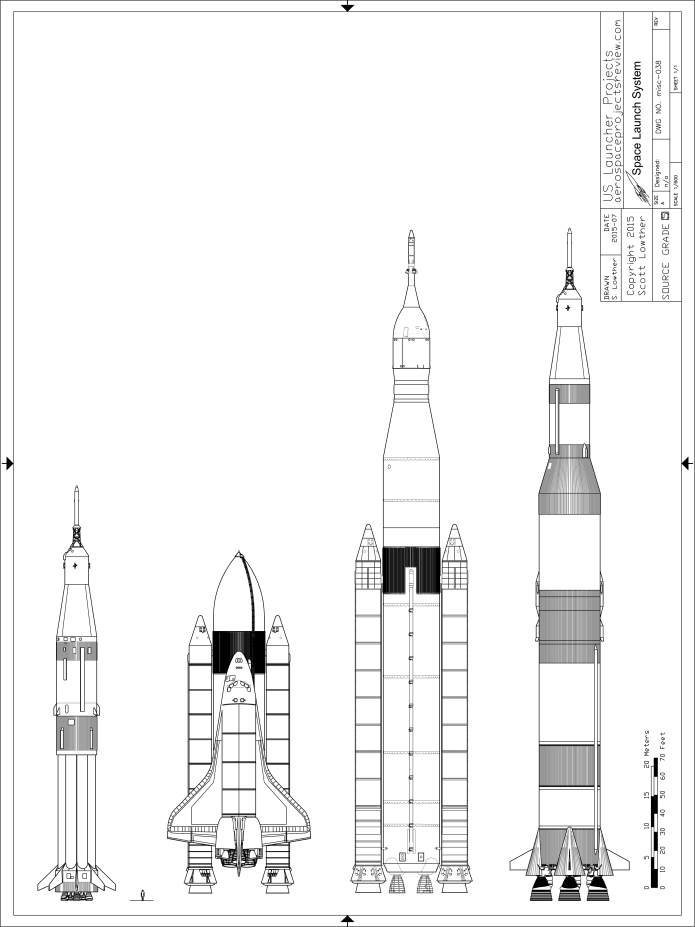Bruce has made a step forward in socializing: he has learned what a sleeping human is for. Up till now, whenever I have attempted to sleep down in the basement Quarantine Zone he has taken the opportunity to practice his “hand and foot attack” skills. But last night he finally figured it out: humans are for sleeping on.
This one might not be for everybody. But then, who could *really* take issue with a short film about a pair of psychos hell bent on slaughtering a family? NSFW language, actions and amounts of blood.
A few days ago I posted about some proposed cyanotype blueprints and asked if there was interest. I got a few comments and a few emails, with totals something like this (as of 12-07, 10:55 am):
Orion: 2
Have Sting: 3
X-15A-3: 3
MRCC: 1
D645-3: 0
X-20/Titan III: 3
B-70: 5
ITHACUS: 0
Hmmmph.
Takes about 10 orders for these things to turn any sort of profit.
The Space Launch System continues to meander ahead. This surprises me; I thought sure it would’ve been cancelled by now. But forward it goes. Proof of that progress comes in the form of NASA recently signed a $1.16 billion dollar contract with Aerojet Rocketdyne (seriously, how depressing is it that this is now one company, rather than two vibrant competitors?) to restart production of the RS-25 rocket engine. Four of these engines will power the core of the SLS launcher.
Diagram showing the Saturn I, Space Shuttle, SLS and Saturn V to scale
The RS-25 was also – and better – known as the Space Shuttle Main Engine. It’s an incredibly complex, fabulously expensive engine, because it tries to squeeze every last erg of performance from the hydrogen and oxygen propellants, and because it’s a man-rated engine that *cannot* be allowed to self-disassemble, and because it’s reusable.
Except… the new RS-25s will be tossed away with each SLS flight. Every time the rocket goes up, four RS-25s will be dumped into the drink.
Seems just a little bit of a waste.
As part of the new contract, the RS-25’s will be modernized; since there’ll be no reusing them, manufacturing processes are to be streamlined and parts count will be reduced. That’s good, but unless the parts count drops a *lot,* the price per engine will remain painfully high.
Interestingly, this is kinda the same/kinda the reverse of the history of the H-1 engine used on the Saturn I. The Thor and Jupiter MRBMs used the LOX/RP-1 S-3 engine; it was the right size for the new Saturn I, but was terribly expensive. So Rocketdyne engineers took the S-3 apart, figured out what they needed and what could be simplified, reduced parts count by (IIRC) more than 90%, and produced the H-1 engine. Lighter, cheaper, more powerful and, as it turned out, reusable without even really trying.
Throwing away the RS-25s after each flight is not necessarily necessary. Many, many Shuttle-derived launch vehicles have been designed over the decades that used SSMEs but didn’t throw them away. Anywhere from one to four (and probably more) SSMEs would be mounted at the tail of the launcher, built into a “capsule” that would separate from the booster after burnout and return the engines to the Earth (generally via ocean splashdown) where they would be recovered and reused. The design below (from US Launch Vehicle Projects #2) is a Martin Marietta concept from 1984 that put three SSMEs into a lifting body module that hung off the side of the booster. This position was chosen so that the booster could be launched from an unmodified Shuttle pad. The SLS mounted the engines directly below the core, necessitating a whole new launch pad. But since the Shuttle is no more, that’s not a big deal.
Since the last nuclear test detonation in the US was *way* back in 1992, the old way to get data on nukes is to revisit the artifacts of long-ago tests. Films turn out to have a surprising amount of new stuff to teach.
Here’s an interesting piece:
What to Do in an Active Shooter Situation
The advice seems to make a whole lot of sense. First thing you do is run away. Second thing you do is hide. And lastly, if the other options aren’t available, you fight. How do you fight? Like a friggen’ madman. One of the examples given was the takedown of the Jihadi on the French train some months back; three Americans and a Briton beat him to a pulp (including beating him in the face with the muzzle of his own gun). It quotes Chris Norman, the Brit on the train, who later said:
“My thought was, ‘OK, I’m probably going to die anyway, so let’s go.’ I’d rather die being active, trying to get him down, than simply sit in the corner and be shot. Either you sit down and you die or you get up and you die. It was really nothing more than that.”
San Bernardino shooting: Attacker pledged allegiance to ISIS, officials say
It seems Mrs. Shooty McJihadpants pledged allegiance to ISIS on Facebook during the course of the attacks.
The whole thing seems to indicate a shocking level of amateurism. The bombs they made were apparently crap; the planning seems to have been non-existent. Extremely oddly, the landlord let the news media tromp through the couples apartment (apparently law enforcement officials are Shocked and Appalled by this); it seems reporters have found things like a half-eaten sandwich apparently abandoned on a moments notice. What that seems to indicate to *me* is that these two were planning on carrying out an attack some time in the future, but Farouk went to the Christmas party, got all P.O.’ed for some reason (perhaps his Secret Santa gave him a canned ham), raced home and told the missus “We Go Now.” Perhaps the planned target of the attack wasn’t the place that actually got attacked, but they just didn’t have the self control to wait that long. *Perhaps* that’s for the best. If they’d had more time, *perhaps* they would have made more and better bombs. But then, *perhaps* they would have been found out and arrested or, even better, they would have accidentally blown themselves to bits while making more crappy bombs.









